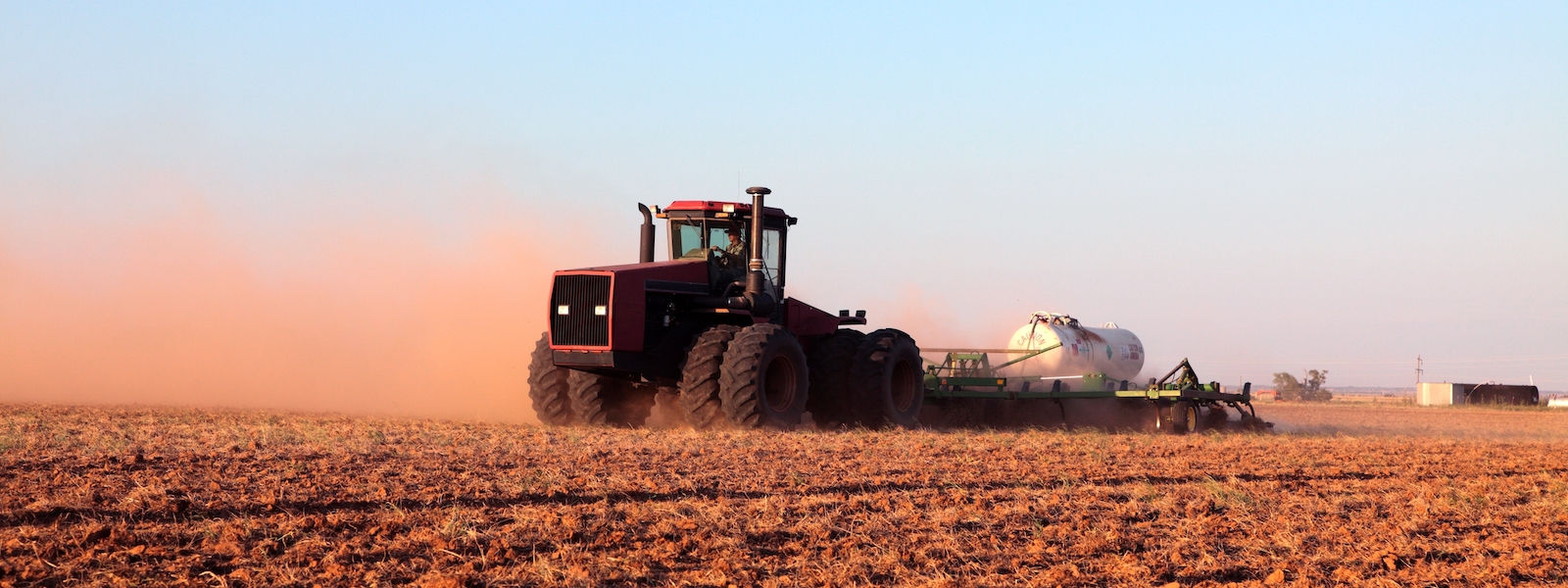Precision Fertilizer Application For Nutrient Efficiency
Efficient Fertilizer Application - BlockApps

Agriculture is the backbone of our society, providing us with food, clothing, and numerous other resources. As the global population continues to grow, it is crucial to ensure that our agricultural practices are sustainable and efficient. One important aspect of this is the application of fertilizers, which plays a vital role in enhancing crop productivity. In this post, we will explore the concept of efficient fertilizer application and its significance in modern farming.
What is efficient fertilizer application?
Efficient fertilizer application refers to the practice of applying fertilizers in a strategic and precise manner to maximize their effectiveness and minimize waste. It involves understanding the nutrient requirements of crops, considering soil conditions, and using appropriate application methods.
Ideas for improving fertilizer application efficiency:
1. Soil testing: Before applying fertilizers, it is essential to conduct soil tests to assess the nutrient levels and pH of the soil. This helps in determining the specific nutrient requirements of the crops and avoids over-application.
2. Precision agriculture: With the advent of advanced technologies, precision agriculture techniques such as variable rate technology (VRT), global positioning systems (GPS), and remote sensing can be utilized to apply fertilizers with precision. These tools enable farmers to target specific areas of their fields that require more nutrients, resulting in optimal fertilizer utilization.
3. Controlled-release fertilizers: Traditional fertilizers often release nutrients rapidly, leading to potential nutrient losses through leaching and volatilization. Controlled-release fertilizers, on the other hand, release nutrients slowly over an extended period, minimizing wastage and providing a steady supply of nutrients to the crops.
4. Organic fertilizers: Organic fertilizers, such as compost and manure, are derived from natural sources and provide nutrients in a slow-release form. Utilizing organic fertilizers not only improves soil health but also reduces the risk of nutrient leaching and pollution of water bodies.
5. Nutrient management plans: Developing nutrient management plans specific to each field can greatly enhance fertilizer application efficiency. These plans take into account crop rotation, nutrient cycling, and the use of cover crops, ensuring that the right nutrients are applied at the right time and in the right amounts.
Recommendations for efficient fertilizer application:
1. Choose the right fertilizer: Different crops have varying nutrient requirements. It is crucial to select fertilizers that provide the necessary nutrients in the correct ratios for optimal growth and yield.
2. Follow application guidelines: Fertilizer manufacturers often provide guidelines regarding application rates and methods. It is important to follow these recommendations to ensure efficient utilization of fertilizers and minimize environmental impact.
3. Consider timing: Timing plays a crucial role in fertilizer application. Applying fertilizers when the crops are most in need of nutrients can enhance their uptake and utilization efficiency. This requires understanding the growth stages of crops and their specific nutrient requirements at each stage.
4. Avoid over-application: Excessive application of fertilizers not only wastes resources but also poses a risk of nutrient runoff, which can contribute to water pollution. It is essential to calculate the required fertilizer quantities accurately and avoid excessive use.
5. Monitor and evaluate: Regular monitoring of crop health, soil conditions, and nutrient levels can help identify any deficiencies or imbalances. This allows for adjustments to be made in the fertilizer application, ensuring that the crops receive adequate nutrition without any wastage.
Listicle of benefits of efficient fertilizer application:
1. Increased crop productivity: When fertilizers are applied efficiently, crops receive the necessary nutrients in balanced proportions, leading to improved growth and higher yields.
2. Resource conservation: Efficient fertilizer application helps conserve resources by minimizing the use of fertilizers and reducing nutrient losses through runoff and volatilization.
3. Environmental protection: Properly applied fertilizers prevent nutrient runoff, which can contaminate water bodies and contribute to eutrophication. By reducing nutrient pollution, efficient fertilizer application helps protect the environment.
4. Cost savings: When fertilizers are applied in the right amounts and at the right time, farmers can minimize wastage and reduce input costs, leading to financial savings.
5. Sustainable farming practices: Efficient fertilizer application is a key component of sustainable farming practices. By optimizing nutrient use, farmers can enhance soil fertility, reduce environmental impact, and ensure the long-term viability of their farms.
Question & Answer:
Q: Can efficient fertilizer application replace the need for other agricultural practices?
A: Efficient fertilizer application is undoubtedly important for maximizing crop productivity, but it should be viewed as a complementary practice rather than a replacement for other agricultural strategies. Other practices such as crop rotation, pest management, and soil conservation are equally essential for sustainable and holistic farming.
Q: How can precision agriculture technologies contribute to efficient fertilizer application?
A: Precision agriculture technologies provide accurate information about soil and crop conditions, allowing farmers to tailor their fertilizer application precisely. By using GPS and remote sensing, farmers can identify nutrient deficiencies or excesses in specific areas of their fields and apply fertilizers accordingly, ensuring optimum nutrient utilization.
Summary of efficient fertilizer application:
Efficient fertilizer application involves applying fertilizers in a manner that maximizes their effectiveness and minimizes waste. By considering factors such as soil conditions, crop nutrient requirements, and utilizing advanced technologies, farmers can achieve optimal fertilizer utilization. This, in turn, leads to increased crop productivity, resource conservation, environmental protection, cost savings, and the promotion of sustainable farming practices. Implementing efficient fertilizer application techniques is crucial for the future of agriculture and ensuring food security for the growing global population.
References:
1. Title: Efficient Fertilizer Application - BlockApps URL: [https://blockapps.net/wp-content/uploads/2020/04/fertilizer-efficiency.jpg]

Post a Comment for "Precision Fertilizer Application For Nutrient Efficiency"